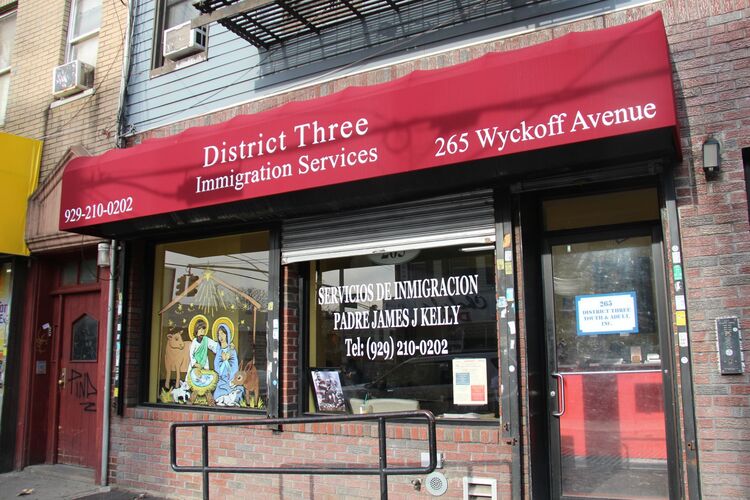Tom Phelan pictured at the World War I
monument on a 2014 visit to his home town.
By Tom Phelan
[This is the latest episode in the author’s series about growing
up in Mountmellick, Co. Laois, in the 1940s and ‘50s.]
The weather exercised a tyranny over Dad’s farming life, creating alternating periods of crisis and calm, and sometimes engendering days of frantic intensity. The daily condition of the soil was ever present in my mind from the moment I could worry; if I was not working the soil firsthand, I was immersed in it by way of Dad’s moods, which reflected the wetness or dryness, the workability or unworkability of our fields. But even during the occasional weeks of continuous sunshine, Dad’s mood never soared, never became playful. For no matter how warm the sun, no matter how dry the soil, in his mind there were always heavy-bellied rain clouds lurking behind Slieve Bloom, waiting to rise up and turn the earth into a quagmire.
For Dad, sunshine was not a gift; it was paid for many times over by months of slogging in boot-sucking mud. Staying one step ahead of the bills demanded constant and sometimes superhuman effort in whatever weather God sent. The hard work ruled out everything that was not necessary to the immediate task at hand. For Dad, the incessant labor dispelled all illusions, all dreams of an easier life. The only time when his imagination took flight was when he wished aloud for specific misfortunes to fall on his perceived enemies, chief of whom was Eamon de Valera. “That bastard!”
There was no escape from the soil, from a land prone to holding water. The soil became sloppy even after a passing shower, so its cultivation required immediate and gargantuan efforts of manpower once the sun and wind had done their part. Weather-dependent farming was as nerve-draining as being holed up in a fort in hostile territory, ever ready to sally forth for provisions when the coast was clear.
Whenever Dad heard his children fantasizing aloud--“Wouldn’t it be great to live in Arizona, where the sun shines all day?”--he collapsed their card houses with a cold breath of reality. Only work considerations counted; the spiritual and intellectual did not. Keeping one step ahead of the always offensive enemy ruled out idealism. All that mattered was creating tactics to get some fieldwork done on days when all four seasons seemed to repeat themselves in quick succession. This required a mindset so ironbound that it was dangerous to even talk within Dad’s hearing when he was working. What made his life all the more hellish was the Church’s admonishment to accept the will of God, when he knew that the God who sent down all this misery from heaven was a mean and rotten bastard.
He was often gaunt with fatigue, and when he was under the pressure of his self- and weather-created anxiety, he sometimes slipped over the edge into extreme impatience. And sometimes he slipped over the precipice into a blind rage. He ruptured several relationships when he flared and spewed over a minor detail, like being charged a halfpenny too much for a gallon of paraffin oil. Whenever his anger began to leak out onto his children, it was Mam, by touch or look or word, who calmed him down. But Mam was not there to save me when the upwelling, searing lava of his anger erupted onto me when I was seven.
The bad weather in the autumn of 1947 brought the farmers of Ireland to their knees as they strove to save their crops. Men and women and children spent long, slogging days carrying scythed cereal out of flooded fields, one sheaf at a time. Acres of potatoes rotted in the liquid clay. Mud and muck oozed into boots and crept up clothing to crotches and armpits. Despair hung in the low-slung clouds. The workers’ fatigue doomed many fields of crops to abandonment. And all the while during those months of struggle, the turf that had been cut in the spring was being morphed back into the bog by the unceasing rain. There was no chance that our winter’s fuel could be saved. Timber would have to be cut out of hedges, drawn home by way of horse and cart to be sawed and chopped. “Spare the sticks “would be the cautionary cry until autumn of the following year.
In our turf shed in October 1947 was a small pile of the previous year’s turf that would last another month if it was used sparingly. When turf is stored, a wall of sods is built on the face of the pile to keep the turf tidy and reduce wastage. Our remaining supply that autumn stood only about a foot high, three feet deep, and five feet long, and so the preciousness of every tiny piece of the dwindling turf had been repeatedly drilled into us.
One Saturday afternoon Dad sloshed into the kitchen for a mug of tea. Everything about him was wet. We knew, as children can know, that this was not a time to play or laugh out loud. When Dad told my older brother, Eddie, to put on his coat and cap and bring in a basket of turf, I volunteered to help in order to escape the thorny atmosphere. After dressing for the rain I ran out to the turf shed, where I decided to surprise my brother by jumping up on the clamp of turf and pretending it was a stage. I would dance when my brother arrived. But it wasn’t Eddie who came. It was Dad.
I still remember the beating he gave me, the whacking with the hard hands. I can still recall the feeling of utter rejection, of being thrown out of the shed and Dad’s life into the heavy rain. I can still see myself in the farmyard in the rain, dancing in terror.
In our kitchen, a narrow and shallow alcove beside the big hob was where the floor brush was stored. For many years after the beating the alcove was called “Tom’s Corner” because I made it my niche. When I sat on the floor and squeezed myself in, no one could get at me. When I pulled my knees up to my chest I was out of everyone’s way. I was invisible. Into this cave I retreated to repair my hurt feelings, and there I discovered that hurt feelings, like a physical bruise, cannot be repaired in a moment.
A long time ago, I stopped crying for the small boy I was then, but I still weep for Dad having to endure forever the remembrance of what he had done to me. I rue the fact that neither he nor I developed the communication skills that would have allowed us to talk about the incident, to hear each other’s words of forgiveness.
Now, as an old man, much older than Dad was on that painful afternoon, I remember him as a man who loved his wife and his children, who at times was driven over the edge while desperately trying to take care of them.
Copyright c 2017 by Glanvil Enterprises, Ltd. The paperback edition of Tom Phelan’s acclaimed novel Lies the Mushroom Pickers Told will be launched by the Irish Cultural Society on Tuesday, 14 March, at 7:30 p.m. in the Garden City Public Library, Seventh St., Garden City, NY. This event is free and open to all. You can read more about Tom at www.tomphelan.net.







